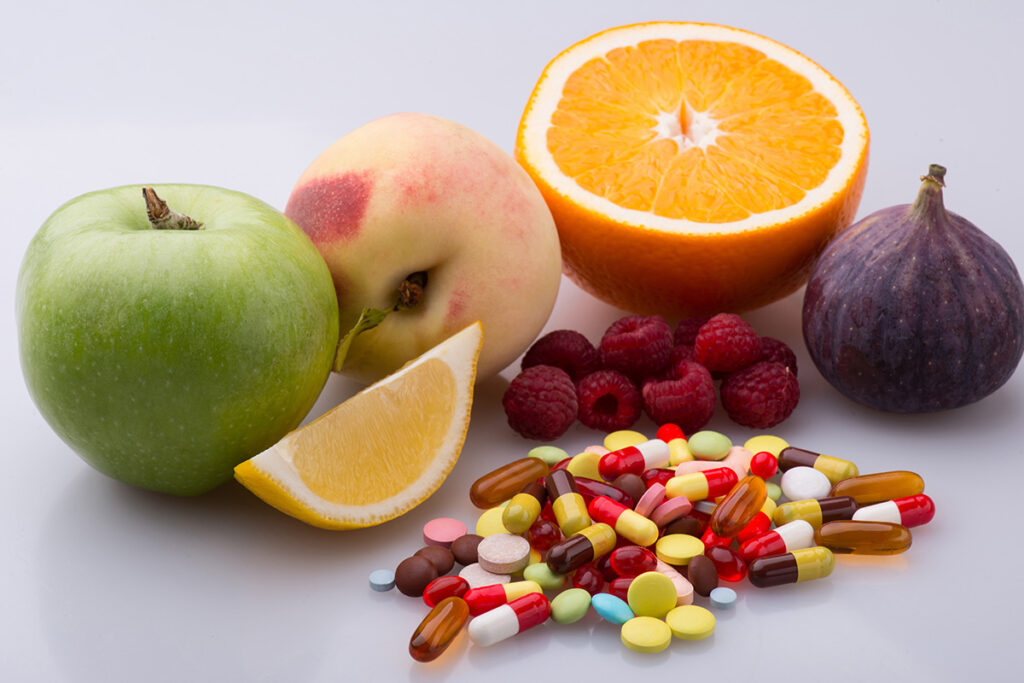Muscle recovery is a crucial aspect of any physical training or exercise routine. After intense workouts, muscles need time to repair and rebuild, and proper nutrition plays a significant role in this process. While a balanced diet is essential, certain vitamins have been shown to specifically support muscle recovery by promoting tissue repair, reducing inflammation, and supporting immune function. In this comprehensive guide, we will explore the vitamins that can aid in muscle recovery and provide insight into their benefits and food sources.
Vitamin C:
Vitamin C is a powerful antioxidant that plays a vital role in tissue repair and collagen synthesis, a key component of connective tissues. During intense exercise, muscle tissues can undergo oxidative stress and damage, which may hinder recovery. Vitamin C helps neutralize free radicals, reduce inflammation, and promote the production of collagen, which aids in repairing damaged muscle fibers. Excellent food sources of vitamin C include citrus fruits, strawberries, bell peppers, and kiwi.
Vitamin E:
Vitamin E is another antioxidant that helps protect muscles from oxidative stress. It works alongside vitamin C to neutralize free radicals and reduce inflammation. Furthermore, vitamin E supports the immune system, which plays a critical role in muscle recovery. Good dietary sources of vitamin E include nuts, seeds, spinach, and avocado.
B Vitamins:
The B vitamins, including B1 (thiamine), B2 (riboflavin), B3 (niacin), B6 (pyridoxine), and B12 (cobalamin), are essential for energy production and muscle function. During intense exercise, these vitamins are rapidly depleted. B vitamins help convert carbohydrates into energy, support the nervous system, and aid in muscle repair. Good sources of B vitamins include whole grains, legumes, lean meats, eggs, and leafy green vegetables.
Vitamin D:
Vitamin D is well-known for its role in bone health, but it also plays a significant role in muscle function and recovery. It helps regulate calcium levels in the body, which are essential for muscle contractions and repair. Additionally, vitamin D has anti-inflammatory properties that can help reduce muscle soreness and inflammation post-exercise. The best natural source of vitamin D is sunlight, but it can also be found in fatty fish, fortified dairy products, and egg yolks.
Vitamin A:
Vitamin A is important for tissue growth and repair. It aids in the production of new muscle cells and supports the immune system. Vitamin A also has anti-inflammatory properties that can assist in reducing muscle damage and promoting recovery. Good dietary sources of vitamin A include carrots, sweet potatoes, spinach, and liver.
Vitamin K:
Vitamin K plays a crucial role in blood clotting and bone health, but recent research suggests that it may also be involved in muscle repair. Studies have shown that vitamin K promotes the synthesis of certain proteins that are necessary for muscle healing and recovery. Good sources of vitamin K include leafy green vegetables, broccoli, and Brussels sprouts.
Conclusion:
Ensuring adequate intake of these vitamins through a well-balanced diet can significantly aid in muscle recovery after intense workouts. While vitamin supplementation can be beneficial for individuals with deficiencies or specific dietary needs, it is generally recommended to obtain these vitamins from natural food sources. Remember that vitamins should not replace a healthy diet or professional medical advice. By incorporating these vitamins into your nutrition plan, you can support muscle repair, reduce inflammation, and enhance overall recovery, ultimately optimizing your performance and achieving your fitness goals.
- Benefits of Folate (Folic Acid) Supplements - November 6, 2023
- Benefits of Devils Claw Supplements - November 6, 2023
- Which Vitamins Help Aid Muscle Recovery? - November 6, 2023

